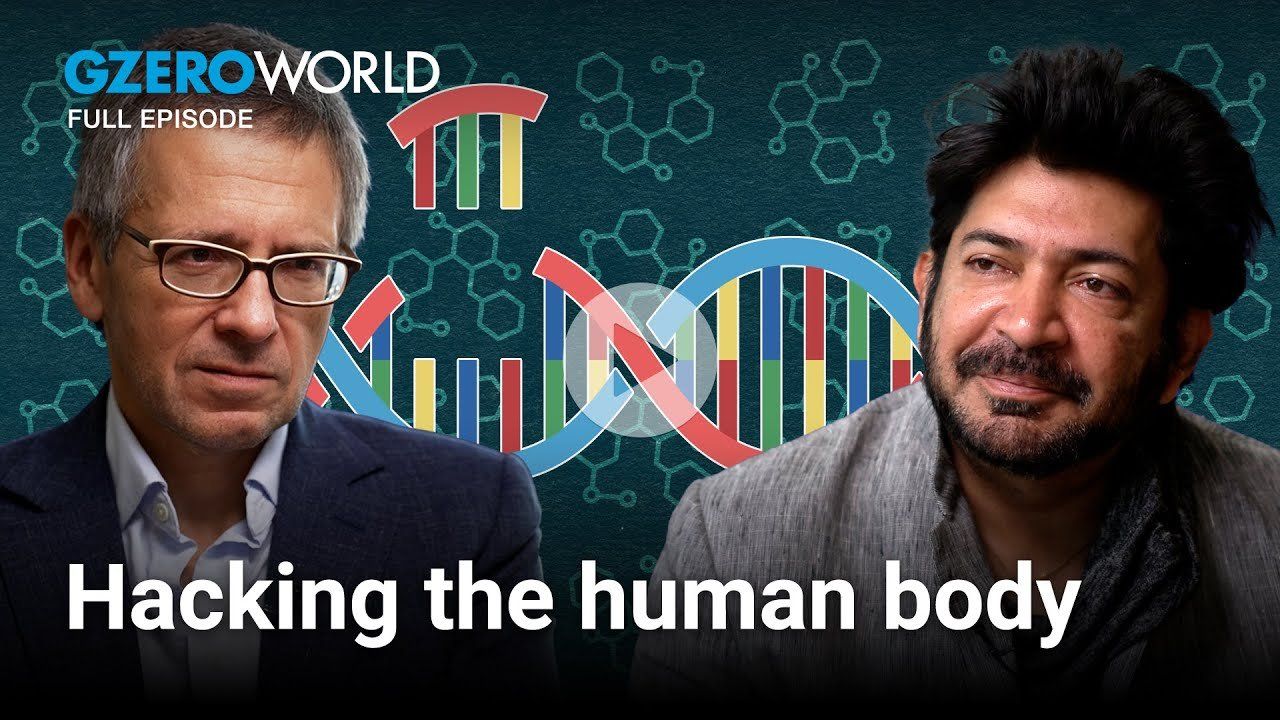GZERO World with Ian Bremmer
From CRISPR to cloning: The science of new humans

From CRISPR to cloning: The science of new humans | GZERO World with Ian Bremmer

The benefits and risks of human enhancement using CRISPR, AI, and synthetic biology.
On GZERO World, Ian Bremmer sits down with physician and biologist Siddhartha Mukherjee to explore the recent advances, benefits, and risks of human enhancement with technology. Mukherjee’s latest book, “The Song of the Cell,” explores the history and medical science behind “the new humans,” a term he uses to describe people who have been altered in some way, initially for medical purposes and, potentially in the future, for enhancement. Bremmer and Mukherjee discuss the transformative impact of new tools like CRISPR gene-editing, AI-powered prosthetics, and brain implants that can help treat everything from movement disorders to depression.
“The idea of the human is changing,” Mukherjee says, "CRISPR, synthetic biology, prosthetic biology with AI, and cloning of individuals—that’s what I mean by the new human.”
These new medical technologies could radically improve our understanding of health and the human body, leading to a future of new medicines, cures for fatal diseases, expanded cognitive capabilities, and even communication with deceased loved ones. But there are also ethical implications to tinkering with human nature, including eugenics as a result of gene editing, the potential for AI to create toxic molecules, and the danger of real-time experimentation on the ecosystem with CRISPR. How do we balance the life-changing potential of biotech tools without changing the very nature of what it means to be human?
For many in Iran, it’s a waiting game for how long Ayatollah Khamenei has left to live.
In a 30-minute call on Thursday, President Donald Trump reportedly told Ukrainian President Volodymyr Zelensky he wants to end the war with Russia as soon as possible — aiming for a deal by summer, but ideally within weeks.
Former British ambassador to the U.S. Peter Mandelson leaves his residence after he was released following his arrest by London police on Monday on suspicion of misconduct in public office, following the release of U.S. Justice Department files linked to the late financier and convicted sex offender Jeffrey Epstein, in London, Britain, February 26, 2026.
The ghost of Jeffrey Epstein continues to haunt the world.
Think you know what's going on around the world? Here's your chance to prove it.